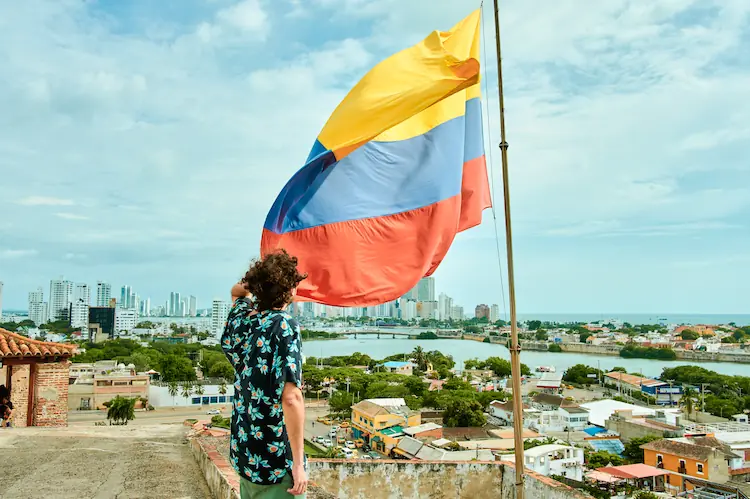SCOTUS Clears Way to Terminate Protected Status for Venezuelan Nationals

On October 3, 2025, the U.S. Supreme Court granted an emergency request from the Trump Administration to stay a lower court’s decision that had blocked the termination of Temporary Protected Status for Venezuelan nationals. Under the Court’s ruling in Noem v. National TPS Alliance, 606 U.S. ____ (2025), the Administration can end protections while the case is reviewed by the Ninth Circuit Court of Appeals.
Facts of the Case
In 1990, Congress established a discretionary program for providing temporary shelter in the United States for aliens from countries experiencing armed conflict, natural disaster, or other “extraordinary and temporary conditions” that prevent the aliens’ safe return. The program authorizes the Secretary of Homeland Security to designate countries for Temporary Protected Status (TPS), under which eligible individuals from that country who are physically present in the United States on the effective date of the designation (and continuously thereafter) may not be removed from the United States and are authorized to work here for the duration of the country’s TPS designation.
In 2021, DHS Secretary Alejandro Mayorkas designated Venezuela under the TPS program. Mayorkas redesignated Venezuela in 2023, and in 2025, he announced that the program would be extended through October 2026. In February, Secretary of Homeland Security Kristi Noem terminated both Mayorkas’ 2023 designation of Venezuela and his 2025 extension of the program. A group of individuals who hold beneficiary status under the 2021 and 2023 Designations, along with the National TPS Alliance, whose members include beneficiaries under both designations, filed suit.
In March of 2025, the United States District Court for the Northern District of California entered a preliminary order postponing the effective date of the Secretary of Homeland Security’s decision to remove TPS from Venezuelan nationals living in the United States. The court concluded that respondents were likely to succeed on their challenge to the vacatur because the Secretary lacked authority to vacate the extension and her rationale for doing so was arbitrary and capricious in violation of the Administrative Procedures Act (APA). The court separately held that both the Secretary’s vacatur and termination decisions were likely motivated by racial animus in violation of the Equal Protection component of the Due Process Clause.
In May, the Supreme Court stayed that order while the Government appealed, determining that the Government was likely to succeed on the merits and that the equities weighed in its favor. The Ninth Circuit ultimately affirmed the District Court’s preliminary order. Last month, the District Court entered final judgment in respondents’ favor, holding unlawful and setting aside the Secretary’s actions effectuating her decision—namely, her vacatur of a pending extension of TPS for Venezuelan nationals, and her termination of that status itself. The Government subsequently asked the Supreme Court to stay the District Court’s judgment.
Supreme Court Ruling
The U.S. Supreme Court granted the application for stay. In a brief, unsigned order, the justices stayed the district court order pending the disposition of the Government’s appeal in the Ninth Circuit and disposition of a petition for a writ of certiorari, if sought. “Although the posture of the case has changed, the parties’ legal arguments and relative harms generally have not,” the Court wrote. “The same result that we reached in May is appropriate here.”
Dissent
Justices Sonia Sotomayor and Elena Kagan voted to deny the application. Justice Ketanji Brown Jackson wrote a dissenting opinion that characterized the Court’s decision as “yet another grave misuse of our emergency docket.” She added:
This Court should have stayed its hand. Having opted instead to join the fray, the Court plainly misjudges the irreparable harm and balance-of-the-equities factors by privileging the bald assertion of unconstrained executive power over countless families’ pleas for the stability our Government has promised them. Because, respectfully, I cannot abide our repeated, gratuitous, and harmful interference with cases pending in the lower courts while lives hang in the balance, I dissent.
This case will likely return to the Court. Please check back for updates.
Previous Articles
SCOTUS Decision in Bowe v. United States Is First of the 2026 Term
by DONALD SCARINCI on February 5, 2026
In Bowe v. United States, 607 U.S. ___ (2026), the U.S. Supreme Court held that Title 28 U.S.C. § ...
SCOTUS Rules State Can’t Immunize Parties from Federal Civil Liability
by DONALD SCARINCI on January 29, 2026
In John Doe v. Dynamic Physical Therapy, LLC, 607 U.S. ____ (2025) the U.S. Supreme Court held that...
Supreme Court to Address Racial Discrimination in Jury Selection
by DONALD SCARINCI onWhile the U.S. Supreme Court has concluded oral arguments for the year, it continues to add cases t...
The Amendments
-
Amendment1
- Establishment ClauseFree Exercise Clause
- Freedom of Speech
- Freedoms of Press
- Freedom of Assembly, and Petitition
-
Amendment2
- The Right to Bear Arms
-
Amendment4
- Unreasonable Searches and Seizures
-
Amendment5
- Due Process
- Eminent Domain
- Rights of Criminal Defendants
Preamble to the Bill of Rights
Congress of the United States begun and held at the City of New-York, on Wednesday the fourth of March, one thousand seven hundred and eighty nine.
THE Conventions of a number of the States, having at the time of their adopting the Constitution, expressed a desire, in order to prevent misconstruction or abuse of its powers, that further declaratory and restrictive clauses should be added: And as extending the ground of public confidence in the Government, will best ensure the beneficent ends of its institution.





